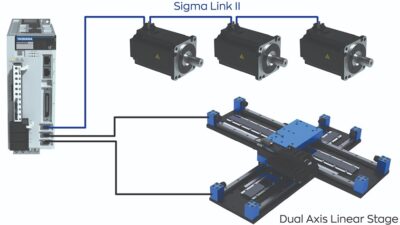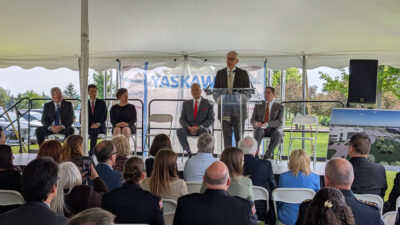Windsor Door transformed operations with a culture of continuous improvement, innovation, and investments in people and operations, including $21 million in a new high-speed production line that doubled plant production and efficiency. Advanced motor technologies improve motion control quality and reliability.
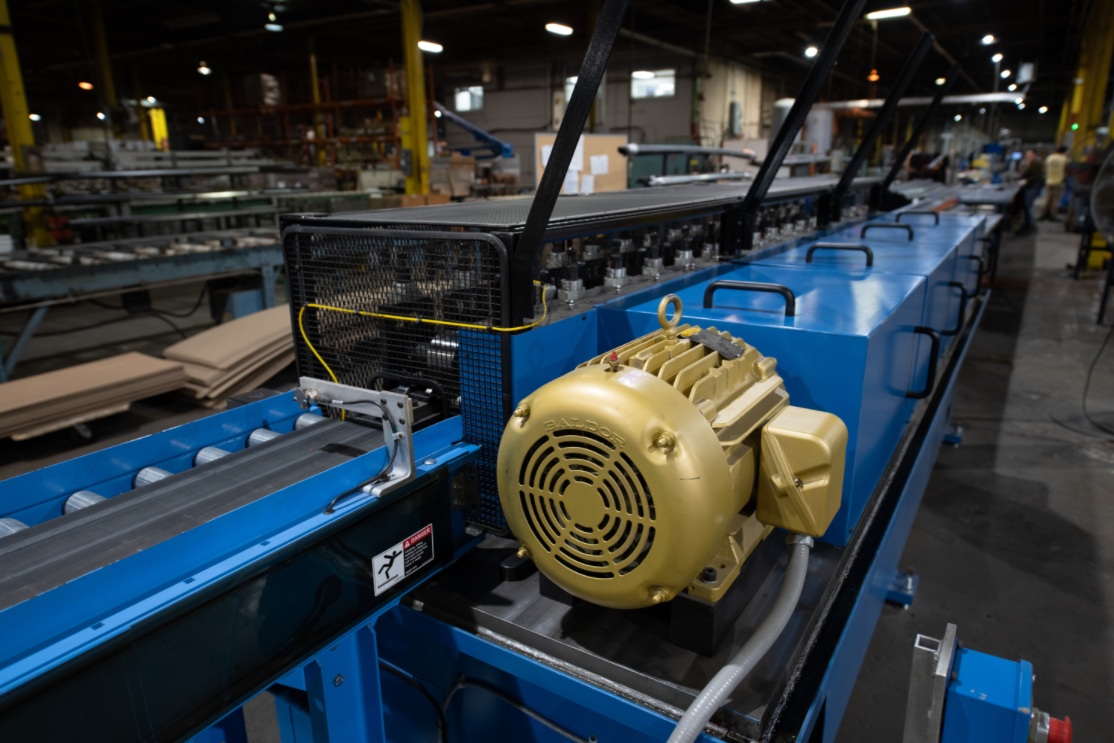
Manufacturing and motion control insights
- Evaluate how Windsor Door applied continuous improvement principles to streamline production workflows, reduce downtime and improve workforce efficiency including with a $21 million in a new high-speed production line at its Arkansas headquarters to double plant production and efficiency and increased operational capacity.
- Analyze how high-performance industrial motors strengthens reliability and energy performance while extending equipment life in high-speed manufacturing environments
- Understand how local sourcing, such as partnerships with Arkansas steel mills and technology providers, support supply chain resilience and sustainable growth in industrial operations.
Windsor Door, an Arkansas-based manufacturer, provides commercial and residential garage doors by investing in people, engineering and motion-control technologies, including a $21 million for a new high-speed production line. The high-speed line doubled plant production and efficiency.
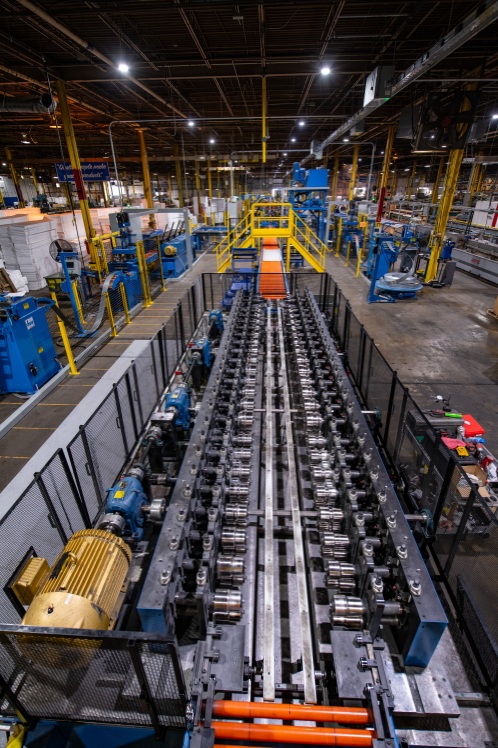
In recent years, the company has undergone a significant transformation with a culture of continuous improvement. The shift began with people before production lines.
Windsor Door drives growth by developing in-house talent and strengthening workplace culture while investing in modern equipment. The company’s approach emphasizes progress and transparency, leveraging Arkansas-made materials, local partnerships and talent to spark innovation. Windsor Door is a third-generation family-owned company based in Little Rock, Arkansas, that designs, manufactures and distributes American-made residential and commercial garage doors, for more than 60 years.
Understand operations to understand improvements
When his sign business closed during COVID-19, Bobby Strahan joined Windsor in 2021 at the entry level, beginning his career at Windsor Door’s Los Angeles distribution center. Though his father, Bob Strahan, serves as president, Bobby Strahan chose to prove himself from the from the ground up, learning every aspect of the business. His willingness to cover second shifts and take on temporary assignments, including frontline roles, gave him a deep understanding of operations while identifying improvement opportunities.
Building a stronger manufacturing culture, decreasing turnover
As plant manager, Bobby Strahan prioritized placing people in roles where they could succeed by capitalizing on individual strengths and leadership potential. This shifted the plant from a high-stress, high-turnover environment to one defined by collaboration and respect. An approachable style broke down the old us-versus-them divide between managers and production crews. Greater trust led to stronger accountability and deeper investments.
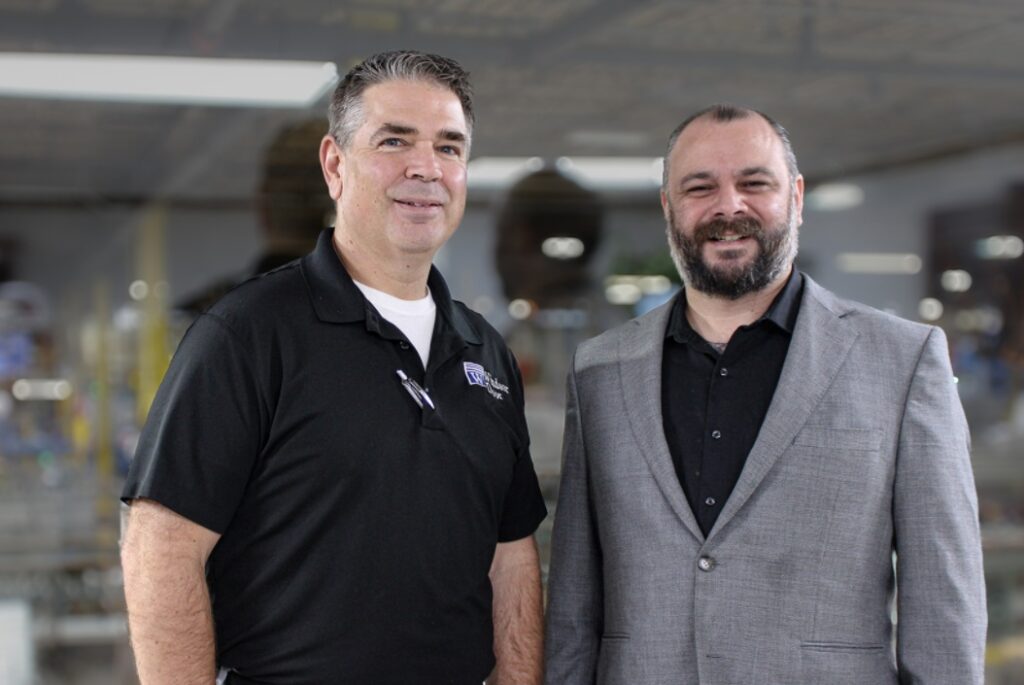
Technical leadership, motion control challenges
To help drive operational change, Strahan brought in Chris Pindell, a certified engineer with a background in steelwork and automation. Hired as engineering manager, Pindell contributed technical expertise and a hands-on leadership style that aligned with Windsor’s evolving culture.
“When I came on board, there was a clear desire to change, but they needed someone who could translate vision into execution,” Pindell said.
Pindell worked to eliminate patchwork fixes and reactive maintenance repairs, replaced with structured daily meetings and long-term planning. Doing so reduced overtime with stronger plant organization and accountability.
“At first, there was some pushback,” Pindell added. “But over time, people saw the value. It kept us moving in sync and built trust across our team.”
Investing the latest motors and motion controls
A major upgrade came with the decision to replace outdated, low-efficiency motors with high-performance electric motors. The resulting high return on investment from using high-performance motors was especially apparent on Windsor’s high-speed line, with significant improvements in operational uptime and energy efficiency, Pindell said. Before, frequent overheating and breakdowns caused delays and downtime. The new motors now power roll formers and drive systems with consistent long-term performance.
“Our old motors would constantly overheat,” Pindell said. With the new motors, “we haven’t had a single motor failure on the high-speed line.”
Because the motor supplier also is an Arkansas-based company, the local connection reinforces Windsor Door’s commitment to elevating the state’s manufacturing economy by partnering with businesses that share its values and dedication to quality.
High-speed production: $21 million toward growth
As part of the growth driven by Strahan and Pindell’s strategy, in 2024, Windsor invested $21 million in a new high-speed production line at its Arkansas headquarters. The high-speed line has doubled plant production and efficiency, in manufacturing low-cost, high-quality builder doors.
Windsor’s reliance on Arkansas-based steel mills began during a national supply chain shortage when out-of-state shipments were delayed for weeks. Local mills allowed Windsor to pick up materials and deliver them directly to its facility to keep operations moving during that critical period. Streamlining logistics helped Windsor and the Arkansas steel industry by reinforcing local demand and creating new direct and indirect job opportunities across the state.
Today, Windsor sources 80% to 90% of the steel from Arkansas, reducing costs and shortening supply lines.
Added investments: RFID, new lines, lower risk
Current and future projects include relocating the central compressor to a quieter, safer space and implementing a radio frequency identification (RFID) system at the loading dock to automate inventory tracking. After adding a new strut line in August 2025 and a new production line in first-quarter 2026, Windsor anticipates hiring additional staff and adding new shifts to meet demand.
Results extend beyond production improvements. Windsor Door reports a safety rate of 1.3 injuries per 100 employees annually, thanks to improved processes backed by better equipment and a more engaged workforce.
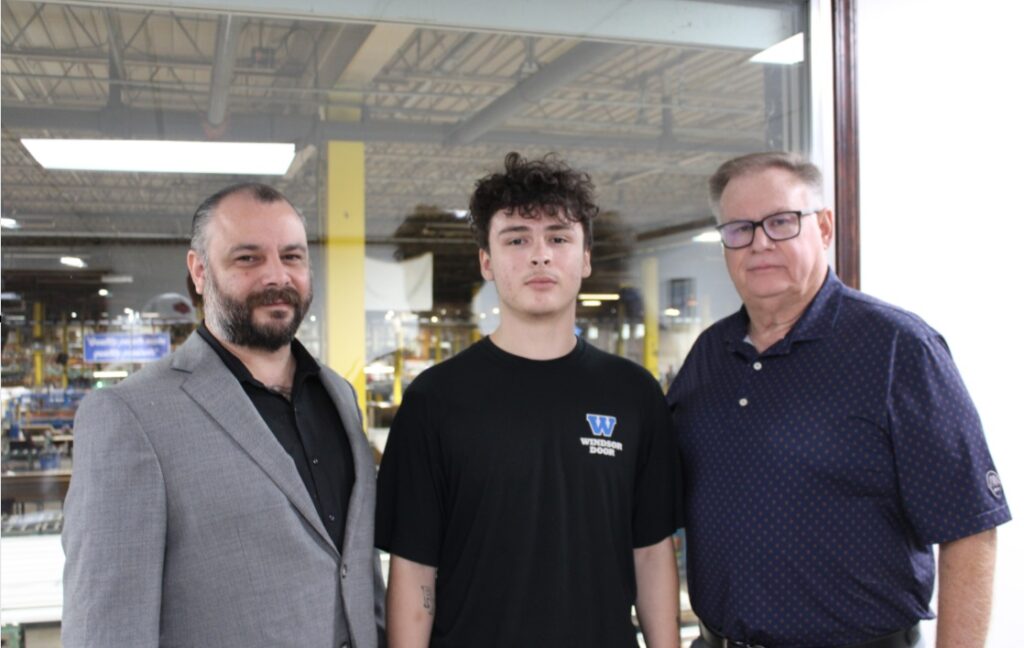
“There’s real pride in the work now,” Strahan emphasized. “We’ve created an environment where good work is recognized and rewarded.”
Windsor has embraced a merit-based culture where leadership roles go to those who earn them. That approach has improved performance and created a team that enjoys coming to work. This new mindset has improved Windsor Door’s culture and deepened Strahan’s relationship with his father.
“This journey has brought us closer. He appreciates the progress I’ve made, and I deeply respect the vision he had from the start that continues to guide us,” Bobby Strahan shared.
At Windsor Door, continuous improvements for people and technologies help support Arkansas industries and local workers.
Brandon Canclini is product manager, ABB NEMA Motors https://www.us.abb.com Edited by Mark T. Hoske, editor-in-chief, Control Engineering, WTWH Media, [email protected].
Keywords
High-performance motor application, manufacturing efficiency
Consider This
How could high-performance motors help your operational effectiveness?
Online
More about motors and drives from Control Engineering
